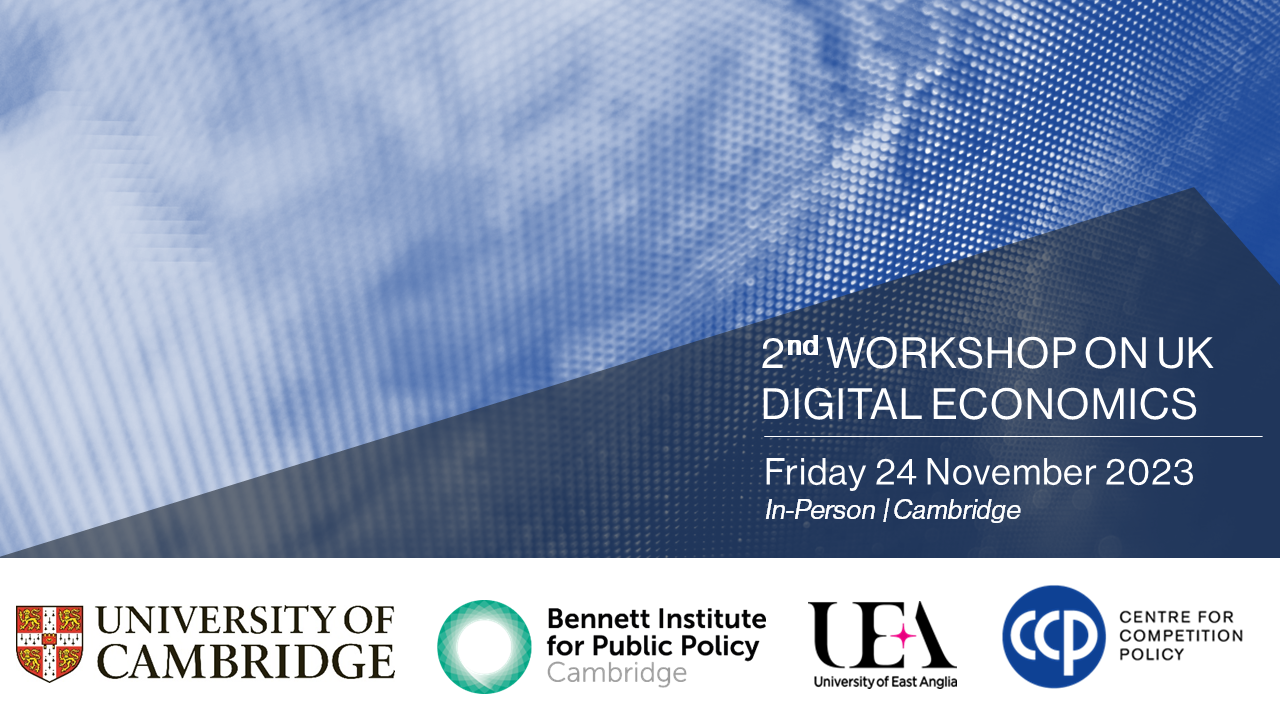Time & Date: 10.00 - 16.00 | Thursday 22 May
Location: Newnham College, University of Cambridge
Organisers: This workshop is organised by Maya Indira Ganesh (LCFI), Apolline Taillandier (LCFI, Newnham College), and Isabelle Higgins (Department of Sociology; affiliated with the Minderoo Centre for Technology and Democracy) with the support of the Minderoo Centre for Technology and Democracy and Leverhulme Centre for the Future of Intelligence, at the University of Cambridge.
Time haunts AI. An origin story in the summer of 1955 that has acquired the status of myth and fact; geopolitical races; the contradictions and entanglements of longtermist and accelerationist ideologies; law and regulation that fail to keep up; promised breakthroughs from the driverless car to superintelligence that fail to arrive, or seem eternally just around the corner. Computational time is also infrastructural: the lag in software updates pushed to the cloud and then to fleets of driverless cars and mobile phones (Mattern, 2017). Temporality works unevenly affording ‘just in time’ deliveries for the busy, but at the cost of bio-social control of delivery workers and on-demand mobility service providers (Sharma, 2014).
This workshop is interested in exploring the temporalities, ideologies, and materialities of AI at a moment of complex political reconfigurations.
Sociologists, anthropologists, philosophers and historians have long discussed the complex politics of temporality – from the fallen angel of modern history, to the fractured temporalities of financial markets and value creation, to the contested expertise over the future (Andersson, 2021; Muniesa, 2024). Within design ideologies of technology as much as within the academy, ‘discourses of time’ tend to naturalise efficiency and acceleration (Paris, 2021). Balaji Srinivasan’s The Network State re-imagines the state free of ‘historical constraints’, the political as networked, and the sociological as the datalogical. AI ferments in the force field of the political velocities set in motion by the US administration, negotiating frictions between ‘the Wall Street–Silicon Valley nexus of distressed debt and startup culture; anti–New Deal conservative think tanks; and the extremely online world of anarchocapitalism and right-wing accelerationism’ (Slobodian, 2025). What is ‘innovation’ when tethered to these new moral orders and moral economies? How are imaginaries pertaining to both ‘AI’ and the tools that specific AI technologies offer mobilised and transformed in pursuit of these political projects? What do these vexed intellectual contexts reveal or suggest of deeper social, economic and political undercurrents changing the face of seemingly new philanthropic and financial elites, or seemingly new articulations of apocalyptic and secular times (Boenig-Liptsin & Hurlbut, 2016; Benjamin, 2024)? How do they reinforce, displace and recast new and old modes of knowledge production and social domination?
Through these questions we hope to interrogate the design, ideologies, and chrono-politics of AI. These are also questions for thinking reflexively about disciplinary and interdisciplinary practice. As academics and technology critics feel the pressure to keep up with reading and publishing at the pace and scale of ArXiv pre-prints or journalists who work on shorter timelines, how does the pace of academic research reflect the life cycle of technology development and regulation, and how can we negotiate this pace?
In this day-long, in-person workshop we hope to map concerns and frictions collaboratively in round-table discussion formats, listening and learning across critical scholarship associated with, among others: innovation timelines, design, research methods, and ideological constellations. A detailed agenda will be circulated closer to the date.





